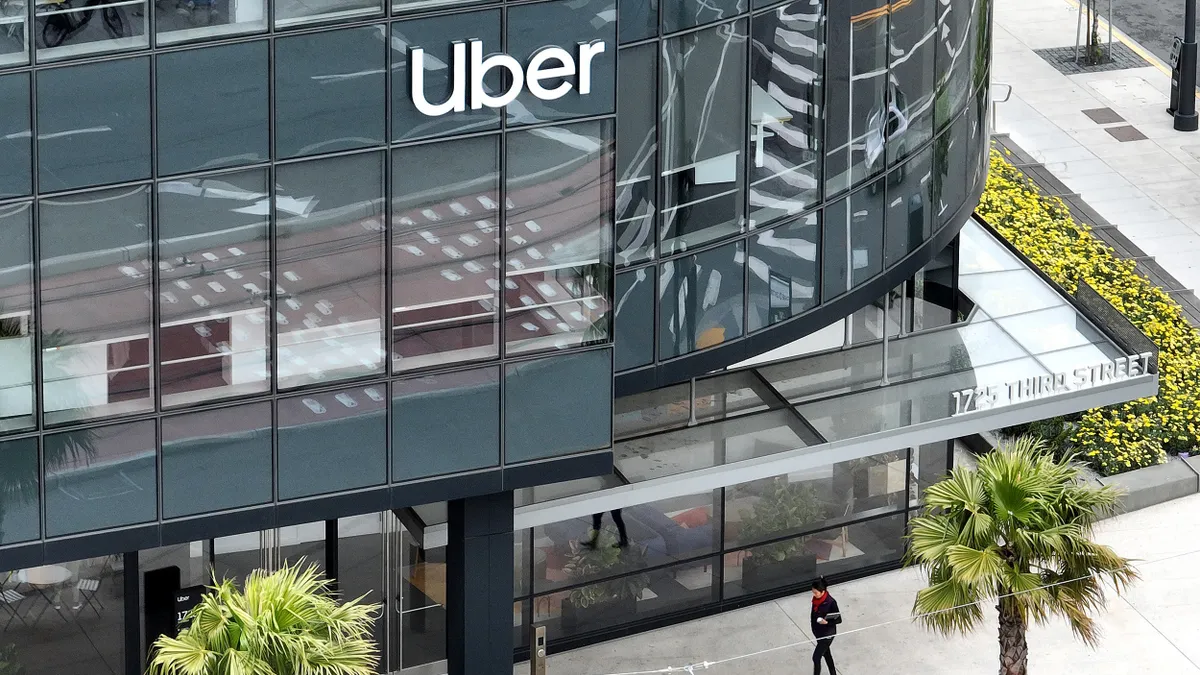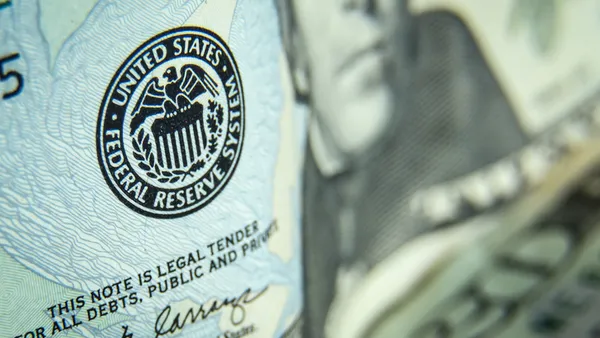Dive Brief:
- Ride-hailing service Uber Technologies will repurchase $1.5 billion-worth of shares from Bank of America as part of a previously announced stock buyback program, the company said Monday in a press release.
- The move comes as Uber targets strong growth in 2025, with CFO Prashanth Mahendra-Rajah noting the San Francisco, California-based company’s stock is “undervalued relative to the strength of our business,” according to a statement included in the release. Uber plans “to accelerate our buybacks under the existing authorization as a result,” he said.
- The buyback program is part of a $7 billion share repurchase plan approved by the company’s board in February 2024, its first-ever such program, according to a company press release at the time. The plan represented “a vote of confidence in the company’s strong financial momentum,” CFO Mahendra-Rajah said in a statement included in the February release.
Dive Insight:
Under the terms of the agreement, Uber will pay Bank of America $1.5 billion and is expecting to receive “an initial delivery of 18,578,727 shares of Uber common stock, representing approximately 80% of the shares of Uber common stock it expects to repurchase under the [accelerated share repurchase] agreement,” according to its Monday press release.
The buyback program comes as the ride-hailing service looks to capitalize on the “considerable momentum” it has upon entering 2025, CFO Mahendra-Rajah said. The executive joined Uber as its CFO in November 2023, having previously served as finance chief for semiconductor manufacturer Analog Devices, according to his LinkedIn profile. He currently serves on the boards for The Goodyear Tire & Rubber Company and e-commerce platform Shopify.
The company is seeking to “continue scaling our free cash flows significantly, enabling us to return meaningful capital to shareholders while still investing in growth,” the CFO said in the statement included in the release.
Uber reported $2.1 billion in free cash flow for its most recent quarter ended Sept. 30, according to its earnings results. The company reported net income of $2.6 billion in the third quarter, while gross bookings increased 16% year-over-year to reach $41 billion.
As part of its plans for growth in 2025, Uber — alongside competitors such as Lyft — is also turning its attention to autonomous vehicles. The company this year plans to allow users in certain cities to hail “driverless taxis” from Alphabet’s Waymo fleet on its app, The Wall Street Journal recently reported. Last month, together with “robotaxi” company WeRide, Uber also announced the launch of autonomous mobility vehicles in Abu Dhabi, representing the first time such vehicles are available on the company’s app outside of the U.S.
The moves are yet another pivot in Uber’s strategy surrounding driverless vehicles. The company stepped away from its efforts in the area during the COVID-19 pandemic, selling its own self-driving unit, Uber ATG, to autonomous vehicle startup Aurora in 2020. As part of the deal, Uber invested $400 million in the startup and CEO Dara Khosrowshahi joined the company’s board, according to a report by TechCrunch.
Khosrowshahi resigned from his position on the board effective Dec. 31, in order to “reduce his external board commitments and focus on his ongoing responsibilities as CEO of Uber Technologies, Inc.” Aurora said in a recent securities filing.
Uber did not immediately respond to requests for comment.












